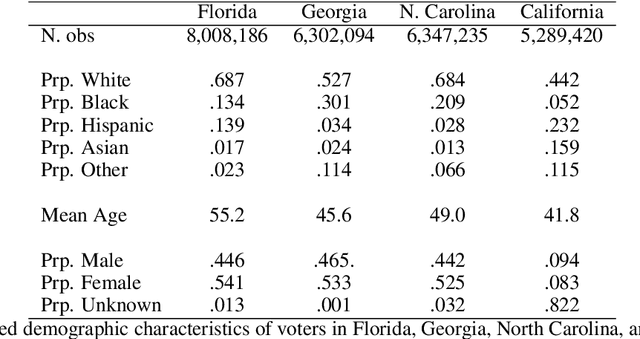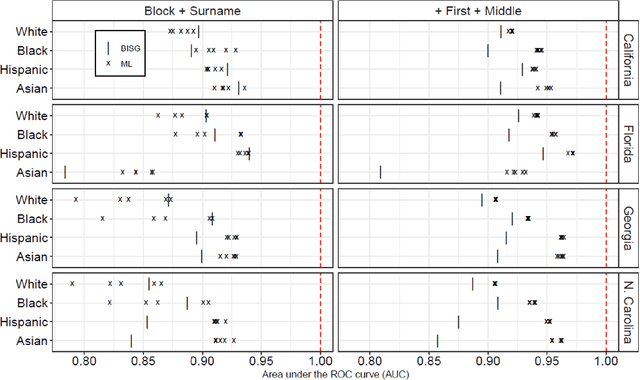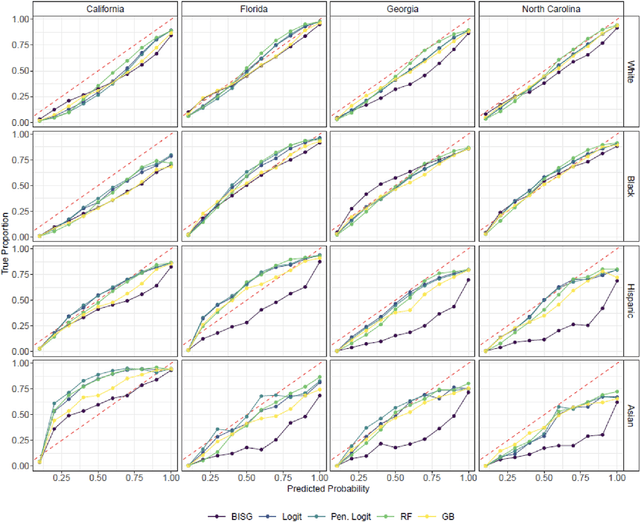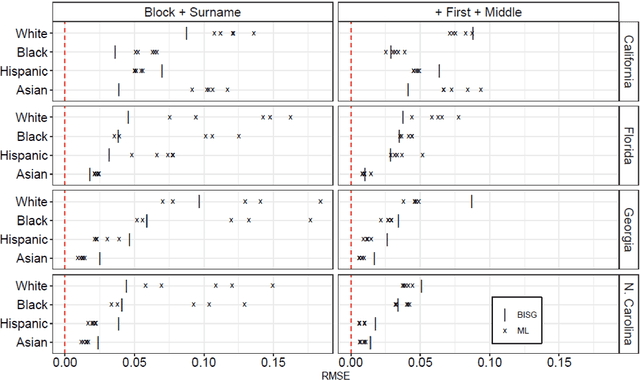Benchmarking Bayesian Improved Surname Geocoding Against Machine Learning Methods
Paper and Code
Jun 26, 2022



Bayesian Improved Surname Geocoding (BISG) is the most popular method for proxying race/ethnicity in voter registration files that do not contain it. This paper benchmarks BISG against a range of previously untested machine learning alternatives, using voter files with self-reported race/ethnicity from California, Florida, North Carolina, and Georgia. This analysis yields three key findings. First, when given the exact same inputs, BISG and machine learning perform similarly for estimating aggregate racial/ethnic composition. Second, machine learning outperforms BISG at individual classification of race/ethnicity. Third, the performance of all methods varies substantially across states. These results suggest that pre-trained machine learning models are preferable to BISG for individual classification. Furthermore, mixed results at the precinct level and across states underscore the need for researchers to empirically validate their chosen race/ethnicity proxy in their populations of interest.
 Add to Chrome
Add to Chrome Add to Firefox
Add to Firefox Add to Edge
Add to Edge